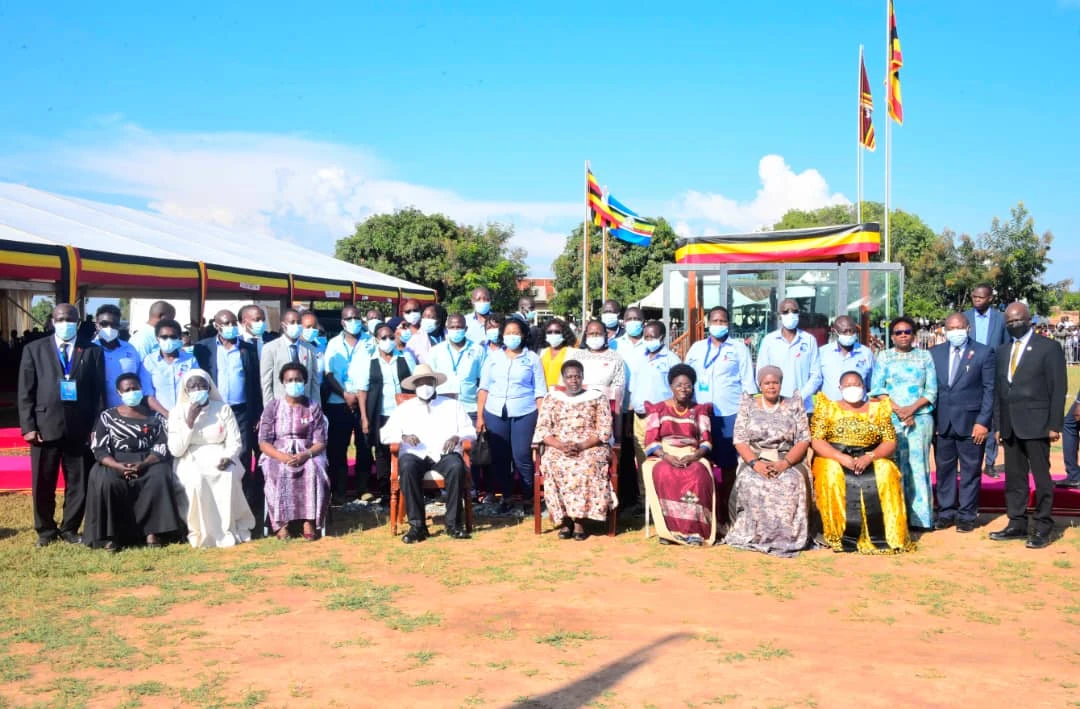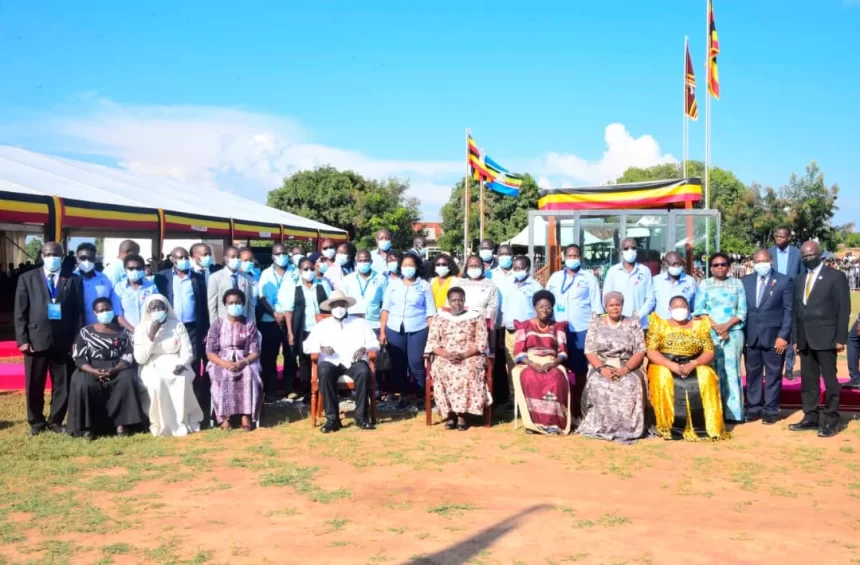President Yoweri Kaguta Museveni on Sunday, December 1, 2024, led Ugandans in commemorating World AIDS Day at Bukungu Primary School in Buyende District.
Themed “Accelerating Interventions to End HIV/AIDS by 2030,” the event reinforced the government’s commitment to eradicating the epidemic while urging Ugandans to adopt preventive measures as the cornerstone of this fight.

Addressing the gathering, President Museveni delivered a strong message on personal responsibility, underscoring the importance of prevention. He warned against complacency fueled by the availability of antiretroviral drugs (ARVs), which, while effective in managing the virus, cannot cure it or restore full capacity to those infected.
“Do not say, ‘Let me get infected since the drugs are available.’ Yes, you may not die immediately, but your capacity will be reduced. Prevention is better than cure,” Museveni cautioned.
The President identified three critical drivers of HIV/AIDS in Uganda:
1. Prostitution, which remains a leading source of new infections.
2. Unsafe Blood Transfusions, now mitigated through enhanced screening and testing protocols.
3. Mother-to-Child Transmission, addressed through modern medical interventions that have significantly curbed transmission rates.
Museveni celebrated advances in medical research, including innovations by Ugandan scientists. Notably, he highlighted a bi-monthly injectable ARV treatment that alleviates the burden of daily medication for those living with HIV. Looking to the future, he pledged government support for ongoing efforts to develop a vaccine and curative treatments, emphasizing the need for homegrown solutions.
A Nation’s Progress
The Minister for the Presidency, Hon. Babirye Milly Babalanda, presented Uganda’s achievements in combating HIV/AIDS, reflecting the nation’s steady progress:
HIV prevalence has fallen from a staggering 18% in the 1990s to 5.1% today.
Out of approximately 1.4 million Ugandans living with HIV, over 1.2 million are receiving treatment.
Out of approximately 1.4 million Ugandans living with HIV, over 1.2 million are receiving treatment.
The annual rate of new infections dropped significantly, with 38,000 recorded in 2023 alongside 20,000 AIDS-related deaths.
Dr. Nelson Musoba, Director General of the Uganda AIDS Commission, credited President Museveni’s leadership for Uganda’s notable reduction in new infections—45% between 2017 and 2023.
Call to Action
Vice President Jessica Alupo and other dignitaries, including Hon. Rebecca Kadaga, echoed the President’s call for disciplined behavior, emphasizing that ending HIV/AIDS by 2030 will require collective effort and unwavering commitment.
“Ugandans must remember that this is a shared responsibility. Prevention, early testing, and adherence to treatment are critical for achieving an HIV-free generation,” Alupo remarked.
The commemoration concluded with a renewed call for action, leaving no doubt about the urgency of the mission. As Uganda accelerates interventions to end HIV/AIDS, Museveni’s rallying cry—rooted in prevention, innovation, and solidarity—stands as a beacon of hope for the fut

